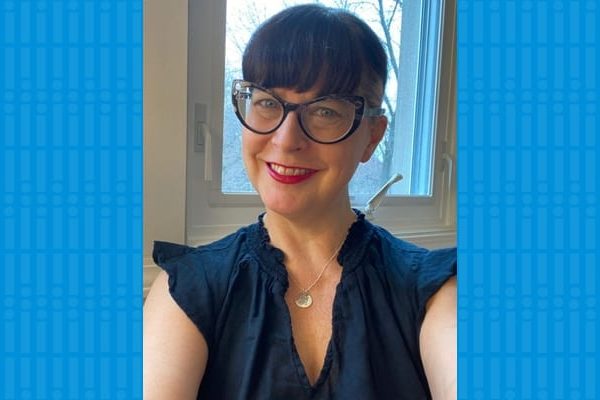The following is a guest blog post, written by alumna and graduating IECMH certificate student Carrie Nepstad, MS ’00, Infant Mental Health Certificate ’20. Carrie is an Associate Professor of Child Development at Harold Washington College.
I work with a national organization of Associate Degree Early Childhood Teacher Educators known as ACCESS, which is a group of community college faculty from around the country. Typically, we meet face-to-face at various annual conferences, and a few times per year we meet virtually. We have members from coast to coast and when it became clear that there was a state of emergency due to the COVID-19 pandemic, and that higher education was going to have to make a huge pivot, we knew we needed to meet with each other more. Since the shut down we have met via Zoom twice per week.
“I encouraged folks to think about how we can hold space for our students as we move forward.”
At first, the participants, which include full-time and adjunct faculty, were mainly concerned with technical supports. We shared various resources with each other about how to convert assignments and activities to an online or remote setting. Because of my training in Erikson’s IECMH certificate program, I was also thinking about taking a more reflective stance and considering the “feelings” aspect of this experience. In an early session, we focused on how to grow and maintain a sense of community with our students and to be mindful of how this major change is impacting major aspects of everyone’s lives. I encouraged folks to think about how we can hold space for our students as we move forward. We need to serve as a calm presence for students, and model what we want them to be doing for the young children and families they serve.
“We are all grieving. This is not the semester we planned. Everything has changed and continues to change and it’s been helpful to take some time to process this together.”
We discussed the importance of looking at course outcomes to consider what is most important in terms of what we want our students to learn in the remaining weeks of the term and how we can cut down on the workload to give space for processing what’s happening. Faculty shared reflection prompts to replace some of the written work, and other ideas for how to meet with students virtually to provide contact and support. In the conversations that followed, folks shared how relieved students were to see each other in Zoom meetings and in virtual office hours and to have the space in which to think together about how they are experiencing this crisis.
“I am grateful for the training I’ve received at Erikson where I’ve learned how to observe and to really listen in order to be present with others.”
We are all grieving. This is not the semester we planned. Everything has changed and continues to change and it’s been helpful to take some time to process this together. I began to see myself as an informal reflective supervisor for the group and with every meeting, I have used the skills I’ve learned in the IECMH program. During our most recent meeting, we spent time discussing how we are experiencing grief across the spectrum from losing Spring Break and commencement plans to suffering from illness, fear, and even loss of life. Something that resonated with the group was the concept of “anticipatory grief” as we look ahead to an unknown future. Based on participation and positive feedback, faculty have reinforced the need for ongoing support in order to be available to provide that same level of support for their students. I am grateful for the training I’ve received at Erikson where I’ve learned how to observe and to really listen in order to be present with others. In this time of the coronavirus, I believe that being present is a form of reflection and learning, but also compassion and love.

Join the Erikson family with monthly news + events updates shared by academics, community members, and families.